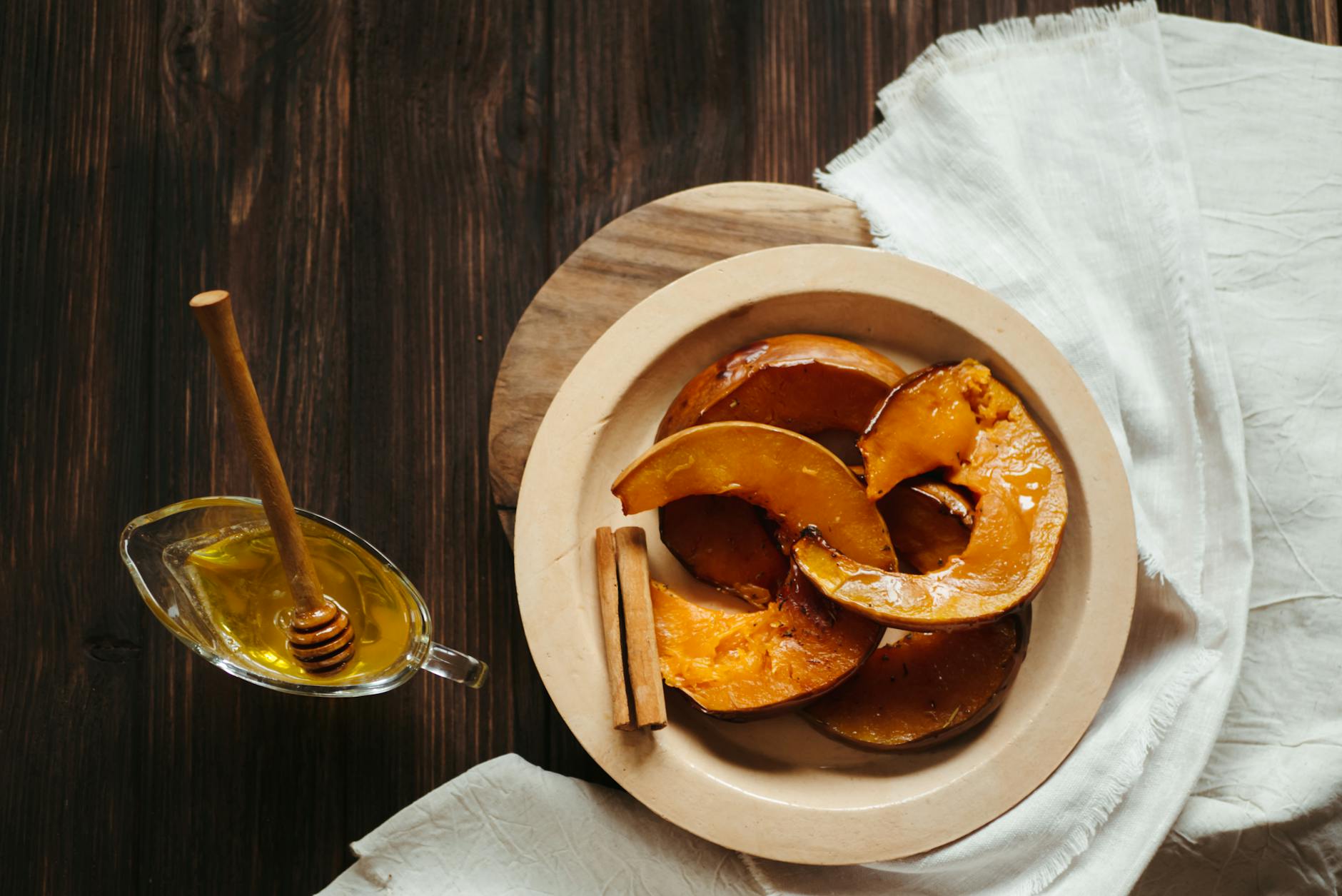Mastering Plant-Based Eating: Vegan Diet Plan & Cookbook Guide
The Plant-Based Cookbook Includes Over 200 Mouth-Watering Recipes For Everyone To Enjoy
Curious about why plant-based diets are becoming so popular? More people than ever are choosing vegan lifestyles, driven by health, environmental, and ethical concerns. Eating plant-based can lower the risk of chronic diseases and reduce your carbon footprint. What’s more, it aligns with values that oppose animal cruelty. In this post, we’ll explore how to plan a nutritious vegan diet and dive into essential recipes from a top-rated vegan cookbook. Whether you’re a newcomer or looking to refine your eating habits, this guide offers the insights you need to succeed.
Understanding Plant-Based Diets
In recent years, the term “plant-based diet” has gained popularity, sparking interest and confusion alike. Whether you’re looking to make healthier choices or simply want to reduce your environmental footprint, understanding what constitutes a plant-based diet can guide you in making informed decisions about your eating habits.

Photo by MART PRODUCTION
What is a Plant-Based Diet?
A plant-based diet emphasizes foods primarily from plants. This includes not only fruits and vegetables but also nuts, seeds, oils, whole grains, legumes, and beans. Essentially, a plant-based diet focuses on eating real, whole foods that are minimally processed. For example:
- Fruits and Vegetables: Abundant in vitamins, minerals, and antioxidants.
- Grains: Whole grains like quinoa and brown rice are rich in fiber.
- Nuts and Seeds: Packed with healthy fats and proteins.
- Legumes: Beans and lentils offer a great protein boost.
The idea is to move away from processed foods and lean more on nature’s bounty. Not only does this diet support overall health, but it also has a lighter carbon footprint. According to Harvard Health, plant-based diets are nutrient-dense and associated with lower risks of chronic diseases.
Differences Between Vegan and Plant-Based Diets
While the terms “vegan” and “plant-based” are often used interchangeably, they have distinct meanings. A vegan diet excludes all forms of animal products, including meat, dairy, and eggs. It’s a lifestyle choice that often extends beyond diet, influencing clothing and product choices as well.
On the other hand, a plant-based diet is more about incorporating more plant foods, rather than entirely eliminating animal products. Some people following a plant-based diet might occasionally include non-plant foods in their meals, focusing instead on the predominance of plants in their diet. This approach provides flexibility and personalizes how one chooses to integrate plant foods into their diet. You can learn more about these differences through Forks Over Knives.
In essence, while a vegan diet is strictly defined by exclusion, a plant-based diet is about inclusion—filling one’s plate with the best of what plants have to offer.
Health Benefits of a Vegan Diet
A vegan diet isn’t just a choice; it’s a step towards a healthier lifestyle. Packed with fruits, vegetables, grains, and legumes, this diet offers a plethora of benefits. It’s more than just what you eat; it’s how it influences your well-being. Ready to explore what makes this diet a powerhouse?
Plant-Based Diet Recipes
Recipes in a plant-based diet play a pivotal role. They bring together the best flavors while maintaining the nutritional value. You can whip up a creamy avocado salad or a hearty lentil stew. These recipes not only fill your plate but also provide essential nutrients without the guilt of added fats.
- Breakfast Options:
- Smoothie bowls with berries and seeds.
- Overnight oats topped with fruits.
- Lunch Ideas:
- Chickpea salad sandwiches.
- Grilled veggie wraps.
- Dinner Delights:
- Quinoa-stuffed bell peppers.
- Zucchini noodles with marinara sauce.
Nutritional Advantages
A plant-based diet offers a wide range of nutrients that are essential for your health. These foods are like little powerhouses, each carrying unique benefits:
- Fiber: Promotes digestion and helps maintain a healthy weight.
- Vitamins: Loaded with Vitamin C, E, and several B vitamins which are crucial for energy and immune function.
- Antioxidants: Protects your body from free radicals and may reduce aging effects.
According to Healthline, when you choose plant-based foods, you’re feeding your body nutrients that contribute to overall health improvement.
Weight Management and Heart Health
Are you aiming for a healthier heart and a slimmer waistline? A vegan diet might be your ally.
- Weight Loss: Studies have shown that vegans tend to have a lower body mass index. Filling your diet with low-calorie, high-fiber foods keeps you satisfied without overeating.
- Heart Health: A plant-based diet lowers cholesterol and improves heart health. Foods rich in whole grains, nuts, and seeds can reduce the risk of developing heart diseases by keeping arteries clear of plaque.
Research from WebMD supports that incorporating more plant foods can lead to better heart health outcomes.
Chronic Disease Prevention
Eating vegan goes a long way in preventing chronic diseases. Imagine your diet as an armor against these ailments.
- Diabetes: Vegan diets help in controlling blood sugar levels and improving insulin sensitivity.
- Cancer: A diet rich in fruits and vegetables is linked to a reduced risk of certain types of cancers.
- Other Chronic Diseases: Regular intake of plant-based meals reduces the risks associated with obesity, high blood pressure, and even arthritis.
According to the National Center for Biotechnology Information, adopting a vegan lifestyle can be a significant preventive measure against these chronic diseases.
By choosing a vegan lifestyle, you’re opting for more than just food. It’s about embracing a healthier, more sustainable way to live your life.
 Photo by Polina Kovaleva
Photo by Polina Kovaleva
Creating a Balanced Vegan Meal Plan
Creating a balanced vegan meal plan might seem like piecing together a complex puzzle, but it’s all about finding the right combination. From bustling breakfast bowls to scrumptious dinners, balance is key. Let’s explore the essentials and a sample meal plan to make your vegan journey fulfilling and nutritious.
Essential Nutrients to Consider
A vegan diet must provide all the essential nutrients to keep your body running smoothly. Here are the key nutrients you need to include:
- Protein: Found in beans, lentils, tofu, tempeh, and quinoa. Don’t miss out on mixing these into your meals.
- Iron: Opt for spinach, lentils, chickpeas, and fortified cereals. Pair them with vitamin C-rich foods for better absorption.
- Calcium: Think beyond milk! Kale, broccoli, fortified plant milks, and almonds are excellent sources.
- Vitamin B12: This is crucial and usually found in fortified foods like plant milks, certain cereals, and nutritional yeast. Consider a supplement to ensure you meet your needs.
For a deeper understanding of these nutrients, The Vegan Society provides a comprehensive guide.
Sample Weekly Meal Plan
To help you get started, here’s a simple weekly meal plan packed with delicious and nutritious vegan meals:
Monday
- Breakfast: Oatmeal with sliced bananas and almond butter.
- Lunch: Quinoa salad with chickpeas, cherry tomatoes, and lemon dressing.
- Dinner: Stir-fried tofu with broccoli and cashews.
- Snack: Apple slices with a handful of walnuts.
Tuesday
- Breakfast: Smoothie with spinach, almond milk, and flaxseeds.
- Lunch: Lentil soup with a side of whole-grain bread.
- Dinner: Black bean tacos with avocado and salsa.
- Snack: Carrot sticks with hummus.
Wednesday
- Breakfast: Chia pudding topped with fresh berries.
- Lunch: Veggie wrap with hummus and mixed greens.
- Dinner: Sweet potato curry with brown rice.
- Snack: Edamame sprinkled with sea salt.
Thursday
- Breakfast: Whole grain toast with avocado and tomato slices.
- Lunch: Spinach salad with nuts and a vinaigrette drizzle.
- Dinner: Vegan spaghetti with marinara sauce and mushrooms.
- Snack: Cottage cheese-style tofu with fruit slices.
Friday
- Breakfast: Pancakes made with almond flour topped with maple syrup.
- Lunch: Chickpea salad sandwich on whole grain bread.
- Dinner: Vegetable stir-fry with tofu and soba noodles.
- Snack: Mixed nuts and a small piece of dark chocolate.
For more meal planning ideas, check out EatingWell’s Vegan Meal Plan, which is tailored specifically for beginners.
With balance and variety, your vegan diet can be a feast of colors and flavors, fueling your body with the energy and nutrients it needs. Remember, every meal is a new adventure in your plant-based journey!

Photo by Nataliya Vaitkevich
Plant-Based Diet Cookbook
A plant-based diet is more than just a trend; it’s a lifestyle choice that’s gaining momentum for its health benefits and environmental impact. A plant-based diet cookbook serves as an essential tool for anyone looking to embrace this dietary shift. It offers a treasure trove of recipes and culinary inspirations, allowing you to explore new flavors and combinations. Let’s dive into the essentials of what makes a plant-based cookbook a must-have in your kitchen.
Diverse Recipes for Every Palate
Plant-based cookbooks are not limited to salads and green juices. They are filled with a variety of recipes that cater to diverse palates. From hearty vegan stews to flavorful pasta dishes, these cookbooks offer something for everyone. You’ll find:
- Comfort Foods: Think vegan mac and cheese or hearty lentil soup.
- Quick Meals: Recipes that can be whipped up in under 30 minutes.
- Desserts: Yes, you can have your cake and eat it too—plant-based style!
By offering a wide range of dishes, these cookbooks ensure that plant-based eating never gets dull. They’re like a culinary adventure that keeps your taste buds on their toes.
Essential Cooking Tips and Techniques
A high-quality plant-based cookbook doesn’t just stop at recipes. It often provides valuable cooking tips and techniques to help you get the most out of plant-based ingredients. For example, understanding how to make a creamy sauce without dairy or perfecting the art of seasoning with herbs and spices.
Cooking techniques included might be:
- How to Cook Grains Perfectly: Learn the secret to fluffy quinoa or perfectly al dente pasta.
- Mastering Meat Replacements: Techniques for cooking with tofu, tempeh, and seitan.
- Healthier Cooking Methods: Techniques like baking and steaming to retain nutrients.
Nutritional Insights
Understanding the nutritional benefits of a plant-based diet is crucial. Many plant-based cookbooks include sections that delve into the health advantages of different ingredients. They might highlight:
- Protein Sources: Beans, lentils, and nuts as excellent protein-providers.
- Vitamins and Minerals: Leverage the natural goodness of fruits and vegetables.
- Balanced Nutrition: Tips on ensuring you’re getting a well-rounded diet.
For those new to this lifestyle, these insights can be invaluable in ensuring that you maintain a balanced and nutritious diet.
For more inspiration, you can explore The Complete Plant-Based Cookbook, which provides a comprehensive guide to plant-based meals. Additionally, Forks Over Knives: Flavor! offers creative recipes and showcases how to use spices effectively in plant-based cooking.
These resources make incorporating plant-based meals into your daily life both simple and enjoyable, all while enriching your culinary skills and health.
Vegan Cookbook Recommendations
Embarking on a vegan journey can be both exhilarating and a little overwhelming. Having the right cookbook can act like a compass, guiding you through the vibrant world of plant-based cuisine. Whether you’re a novice or a seasoned vegan cook, the perfect cookbook can introduce you to new flavors and kitchen techniques, turning every meal into a delicious experience.
Top Vegan Cookbooks for Beginners
If you’re just starting out on a vegan diet, it’s essential to have access to resources that simplify vegan cooking while still delivering on flavor. The following cookbooks are designed with the beginner in mind, offering easy-to-follow recipes and valuable cooking tips:
- Vegan Cookbook for Beginners: This essential guide introduces you to the plant-based lifestyle with simple recipes that anyone can master.
- Isa Does It: Known for its approachable language and hearty meals, this book is a favorite among those new to vegan cooking.
- Vegan in 7 by Rita Serano: For those who appreciate minimal ingredients and maximum taste, this cookbook is ideal, offering recipes that require only seven ingredients.
- Vegan Cooking for Two, by America’s Test Kitchen: Perfect for smaller households, this book provides practical recipes without overwhelming portions.
Each of these books aims to make the transition to veganism as smooth as a well-blended smoothie!
Advanced Vegan Cooking Techniques
For the seasoned vegan chef out there, diving into more complex recipes and techniques can take your culinary skills to new heights. These cookbooks are rich in advanced techniques and creative dishes, providing endless inspiration:
- Mastering the Art of Plant-Based Cooking: With over 300 recipes, this cookbook explores the rich tapestry of global vegan cuisine, making it a must-have for serious cooks.
- Mildred’s Vegan Cookbook: Known for its complex recipes, this cookbook is perfect for those ready to tackle advanced plant-based dishes.
- Plenty More by Yotam Ottolenghi: Explore Middle Eastern flavors with creative twists in this beautifully crafted cookbook, perfect for cooks looking to broaden their palate.
By embracing the techniques and diverse recipes found in these cookbooks, you’ll not only refine your cooking skills but also delight your family and friends with nuanced, flavorful meals.
Photo by Mustafa Akın
Tips for Transitioning to a Vegan Diet
Making the switch to a vegan diet is like setting off on an exciting culinary adventure. If you’re ready to embrace this lifestyle, it’s important to do so in a way that suits your unique circumstances. So, whether you want to dive right in or take it slow, here are some helpful tips to make your transition smoother.
Gradual vs. Immediate Transition
Some people leap into a vegan diet all at once, while others prefer to ease into it. Both approaches have their pros and cons.
- Gradual Transition: This method allows your body and taste buds time to adjust. You might start with meatless Mondays or introducing more plant-based meals into your week. This can make the change less overwhelming and give you time to learn about new ingredients and recipes. Gradual changes can lead to sustainable habits, helping you stick to your new lifestyle for the long term UCLA Health.
- Immediate Transition: Going vegan overnight can be thrilling for some. This approach often works for people who thrive on making a clean break from old habits. If you’re committed and ready to handle the challenges head-on, jumping straight into veganism can be an empowering choice. However, make sure you educate yourself on nutritional considerations to ensure a balanced diet.
Finding Vegan Alternatives
Switching to a vegan diet doesn’t mean you have to give up on your favorite foods. Thanks to a variety of vegan alternatives, you can enjoy similar tastes and textures without animal products.
- Dairy Substitutes: Swap out cow’s milk for almond, soy, or oat milk. These plant-based milk options are great in everything from cereal to coffee.
- Meat Replacements: There are many products like tempeh, tofu, and seitan that mimic the texture and flavor of meat. Brands are also creating plant-based burgers and sausages that taste remarkably like the real thing Vegan.com.
- Egg Alternatives: You can use applesauce, mashed bananas, or commercially available egg replacers in baking. These options also work well in cooking and have become staples in many vegan kitchens KitchenAid.
Navigating Social Situations
Being vegan can sometimes make dining out or attending social events a bit tricky. Here’s how to manage those situations like a pro:
- Dining Out: Research the restaurant’s menu beforehand if possible. Many places now offer vegan options, or you can ask the chef to customize something for you.
- Social Gatherings: Communicate your dietary needs to the host in advance. Offer to bring a vegan dish to share, so you have something to enjoy and share with others Animal Advocates.
- Handling Questions: You’ll likely encounter curiosity or even opposition regarding your diet. Respond calmly and informatively. Sharing your reasons for choosing a vegan lifestyle can be a teaching moment, but remember, you don’t owe anyone an explanation.
Remember, transitioning to a vegan diet is a personal journey. What works for one person might not work for another. Be patient with yourself as you navigate new foods and social dynamics. Whether you take it step by step or dive right in, the key is to enjoy the journey and the new tastes it brings.
Conclusion
Adopting a plant-based diet offers a range of health and environmental benefits. With a thoughtful vegan diet plan, you can ensure nutritional balance while enjoying diverse, delicious meals. A reliable vegan cookbook can be an invaluable resource, providing guidance and inspiration for both beginners and seasoned practitioners.
Taking the first step towards a vegan lifestyle can be rewarding. Explore the wide variety of options and experiment with new recipes. By doing so, you not only contribute to your own well-being but also play a part in promoting sustainable living practices.
Consider starting your plant-based journey today. Equip yourself with knowledge and resources to make informed choices. Engage with communities and share your experiences. Your commitment can lead to positive change.














Leave a Reply